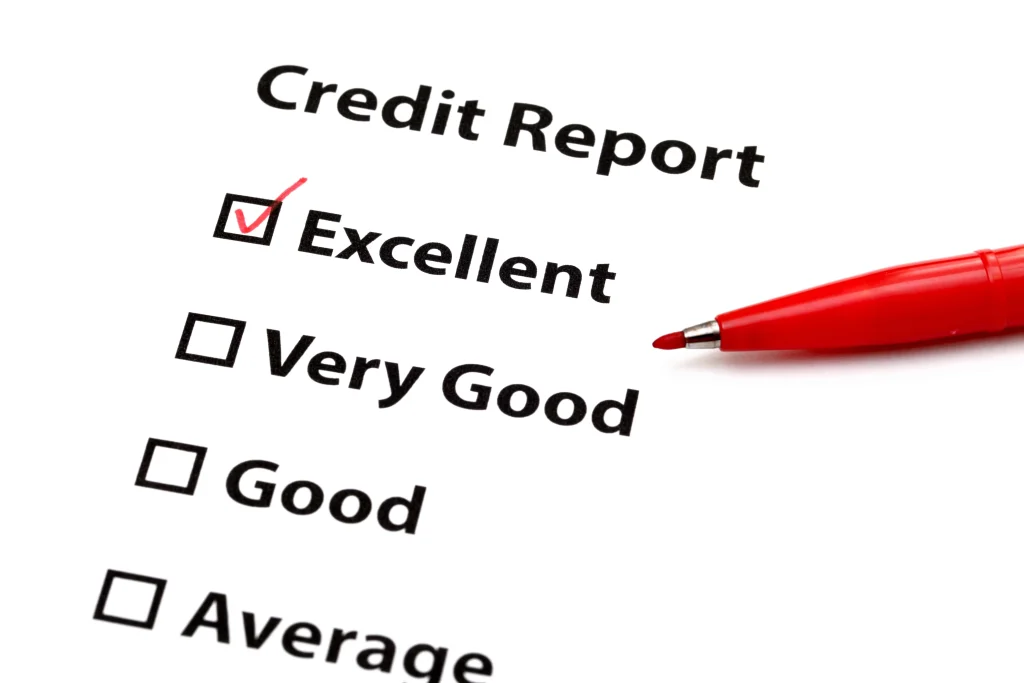Building costs, condo prices, and even a simple RFO house and lot are seeing an increase in prices. For investors, this may sound like a great deal because you can sell properties for a higher price. Unfortunately, buyers are becoming more reluctant in buying a house. So, should you be worried about your investments?
Residential property demand might decline
Last July 25, 2022, Philstar reported that the demand for residential real estate may experience a drop because of the continuous increase in interest rates and prices.
During the first quarter of the year, the prices of residential properties in the country were slowly rebounding, with a 5.6 percent increase. This is because of the sustained opening of businesses that allowed for economic movement. Unfortunately, because of the recent continuous increase in the dollar, the Bangko Sentral ng Pilipinas had to raise interest rates to 3.25 percent. As a result, while the forecast for the residential real estate market started off strong, this increase in interest rates may affect the demand in the short to medium term.
According to the BSP, residential property prices in the National Capital Region (NCR) increase by as much as 9.5 percent year on year. This increase in prices is mostly seen in condominium units and townhouses, which offset the decrease in prices of single-detached, single-attached, and duplex houses. Meanwhile, the prices of properties in areas outside of Metro Manila also increased by 5 percent year on year. All types of housing units experienced an increase, except for single-detached and single-attached homes.

Unfortunately, the increase in interest rates will not only affect the residential market but also commercial real estate. According to Cushman and Wakefield Philippines, a property services firm, the recent upward adjustments in interest rates can affect the accessibility of retail and corporate bank financing.
Furthermore, rising interest rates have long been known to also affect mortgage rates. This will affect the purchasing power of the majority of hopeful homebuyers that they might consider a house for rent instead of buying a house for themselves.
According to Cushman and Wakefield Philippines, the momentum of the growth in Metro Manila because of the return-to-office largely applied by the IT-BPM industry can help support the residential real estate market. Moreover, provincial areas with major infrastructure developments may also help stimulate the residential real estate market.
Tips for buying a house during inflation

Historically, high interest rates and inflation also mean a rise in real estate property prices. This is because inflation also affects materials for home construction, which makes new houses even more expensive. While this may sound like great news for sellers, it can become even more challenging to find buyers for an investment property.
Here are some of the things you should do when buying a house during inflation:
1. Buy a house ASAP
As you see interest rate hikes about to ravage the prices of literally everything, you should be even more aggressive in buying a house and lot for sale property before the prices go even higher that you won’t be able to afford it. Look at the trends in prices and see if it could be cheaper to buy a house right now than in the future.
The same goes for rental properties prices, which are also blowing up faster than house prices in some places. You can avoid the further increase in rent prices if you get a house for rent now.

As home and rent prices continue to rise, you may not be saving a lot of money by waiting to buy until prices go down. Because as home prices go up, the likelihood of it coming down to an “affordable” price is pretty low. The most likely scenario is the economy may just catch up enough that the people can afford to buy expensive houses again.
2. Adjust your house budget for real estate investing
One of the best strategies in budgeting for a house or condo is to know the farthest you can go in spending for a home (be it cash or monthly mortgage payment). This will let you cull your choices and understand when it’s time to give up on that house no matter how perfect it is for you.
If you’re planning on spending more, you should also consider the cost of down payments, the cost of living in the area, the rising prices of goods and services, home maintenance and repair costs, and more. Inflation will increase all of these, including property taxes and home insurance. Hence, you should always consider these “small” costs when adjusting your budget.
3. Expand your search
After adjusting your budget, you should also adjust your home or condo hunting strategy. You might have to look at smaller properties or condos, or maybe look for properties outside Metro Manila where the cost of living is way lower.

If you’re looking to cut costs by buying a cheap house and then renovating it to your liking, be careful. As we mentioned, as interest rates increase, so do building materials and the cost of labor. So, repairing and renovating may cost more than you intend to.
4. Improve your credit score and financial picture
In an expensive environment, finding the lowest interest rates you can get will help you keep monthly costs at bay. However, you’re going to need a good credit score to have a wider borrowing range. If you can get your credit score as high as possible, you will have access to the best mortgage rate, which, in turn, will help keep your payment to a minimum.
Of course, buying a house or condo in straight cash is also an option — probably even the cheapest way (overall) to buy a house. However, even if you can afford it, you have to make sure that you still have a lot of liquidity to spare.
Your credit score is an important measure of financial health. It is based on a level analysis of all your credit files and it represents how worthy you are of credit. The higher your credit score, the easier it will be to get approved for loans or new credit lines or credit cards.
To increase your credit score, do the following:
Review your credit history

To improve your credit score, you should know what you’re currently working with. Know what could be working for you and against you. Pull your credit report on the Credit Information Corporation website. Just follow the steps in creating your account and pay their fee to pull your credit history. Review the report and see where you’re at.
Some banks also offer credit monitoring for their customers, so be sure to check with yours to see if you can pull your credit history.
There are a lot of factors that affect your credit score. Look out for on-time payments, low credit card balances, loan accounts, minimal inquiries for new credit, late payments, missed payments, high credit card balances, and more.
Manage your payments
Credit scores are usually determined by five factors:
- Payment history
- Credit usage
- Age of credit accounts
- New credit inquiries
- Credit mix
Of all these factors, payment history has the biggest impact on your score. Hence, it’s always best practice to pay your debts or credit card balances responsibly. Avoid late payments at all costs.
Aim for 30% credit utilization

Credit utilization is the portion of your credit limit that you use. Remember that a factor of your credit score is determined by how you use your credit. Hence, the simplest way to manage your credit utilization is to pay your balances in full every month.
However, some people can’t always do this. Therefore, it’s good practice to only use 30% of your credit limit so that you’re sure you can always pay your balance in full. If your current 30% is too low for you, you can ask your bank to increase your credit limit. This can help your credit utilization as long as you don’t increase your balance as well.
5. Choose mortgage loans carefully
During inflation, people are more desperate to find the lowest prices they can get their hands on — including prices in buying a house or getting a RFO house and lot. Therefore, it’s very important to choose mortgage loans cautiously. There are a lot of different options available that will work well for you than getting a 30- to 50-year mortgage.
An adjustable-rate mortgage (ARM) is a great option for some buyers of real estate properties because they have lower rates for the first few years. Depending on the loan term, the rate can adjust after that. ARMs allow you to get a lower than average mortgage rate for a specific amount of time. This can help you cut costs if you don’t plan on living in the house for a long time.

Some loans also have low down payment requirements, while some offer no mortgage insurance costs. This can help soften the blow brought on by the increase in interest rates. Hence, before looking for a house or condo, you should talk to a mortgage broker or to your bank about the loan programs you are qualified for. Rates and terms will vary from one company to another, so be sure to expand your search.
What to do if there is a housing market and real estate investment crash
For both real estate investors and realtors, planning ahead is a great skill that will determine their success in the industry. To help you get started, here are some of the things you should do if the housing market crashes:
Focus on locations
Buying a property in Metro Manila is almost always expensive compared to the provinces. However, before you go out of your way and invest in cheap property in a province, you have to consider accessibility, amenities of a neighborhood, development plans in the area, and appearance. All these factors will help make finding a buyer easier.

Focus on areas where it makes more sense to buy real estate than building or renovating an entire house. This will help you cut costs from building and labor, which can maximize your profit from a sale.
Cash Flow versus Capital Gain
In times of inflation and increasing interest rates, don’t buy properties for capital gain. Now is not the time to buy a house for 2 million pesos and flip it for 3 million. The people are trying to cut costs, so you need to turn your investments into a cash flow instead. Take advantage of the strong rental market and put up a condo or RFO house and lot for rent so that you have continuous cash flowing into your pocket, long-term.
Anticipate market shifts
Anticipating the market is different from market prediction. Anticipation involves creating strategies based on situations in the current market trends.
Collect all the necessary market data that you need, including current and future economic conditions and probable actions of your competitors. After that, analyze the data and plan various ideas and possible realities. This will help you prepare for both current and upcoming challenges.

Finally, you have to be flexible enough to adjust to whatever may happen in the economic climate and trends in real estate. Innovation is key to improving and delivering more value to your clients.
Adjust to your clients’ needs (for those who have real estate investors as clients)
According to Bill Gasset, owner of Maximum Real Estate Exposure, it’s important for a real estate investor and real estate agents to adjust for their clients. It’s difficult to have very few people to work with, so you have to know what your clients currently need to target the larger population.
During the real estate downturn from 2007 to 2012, Bill Gasset saw that a lot of homeowners lost equity in their homes because people were losing their jobs and the economy was crashing. One of the major challenges that his clients faced was foreclosure. Because of this, there was also an increasing demand for property short-selling so that homeowners can gain profit from their property instead of losing it to foreclosure. To keep his business running, Bill provided short-sale services, which helped him acquire 80 to 100 transactions.
If you really want to enter the real estate investment market, you can always try real estate investment trusts as an alternative.
Markets will almost always correct themselves, but before it does, investors have to be ready to adjust. Even if it means having to learn something new or investing more money in your business.
Related Blog: The Philippines’ Inflation Rate Hits 4.9%. Highest Since January 2019. What Does This Mean?


